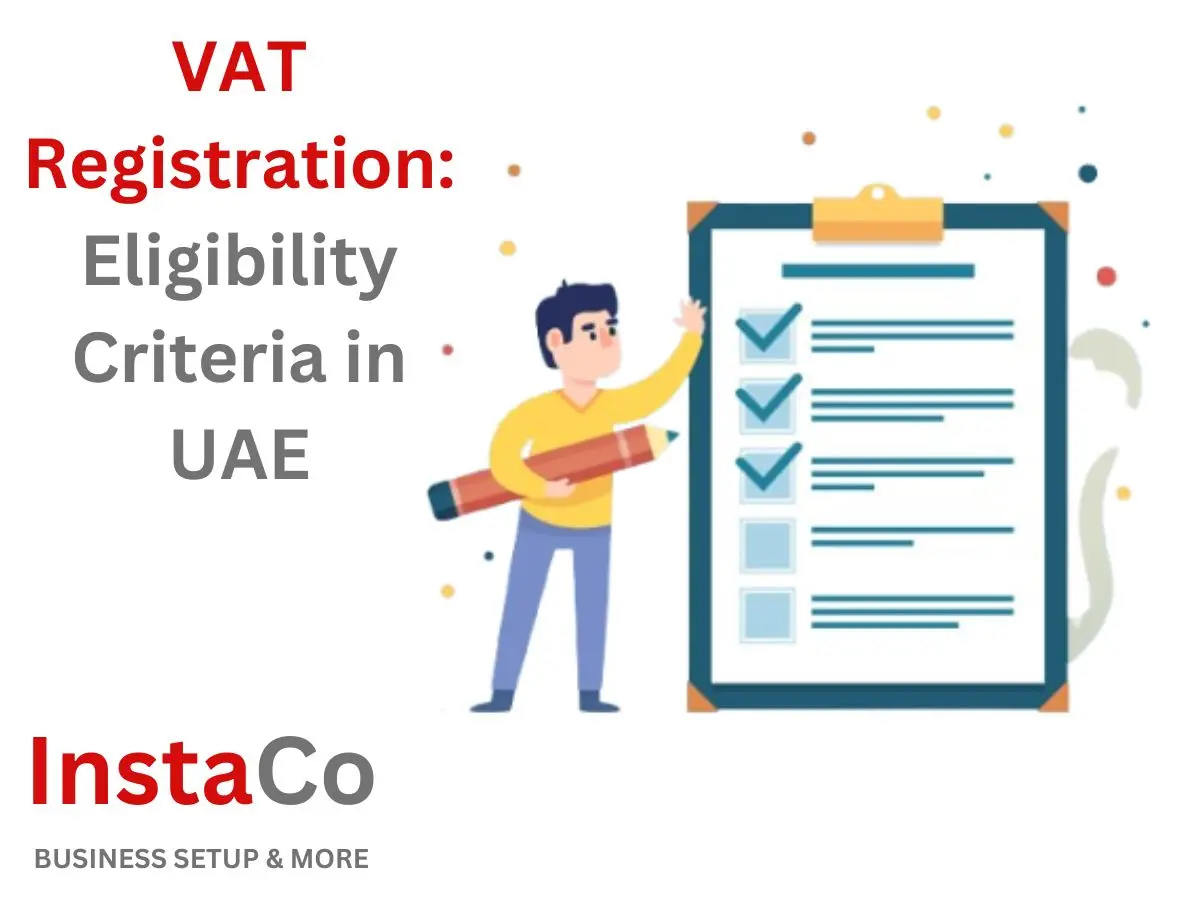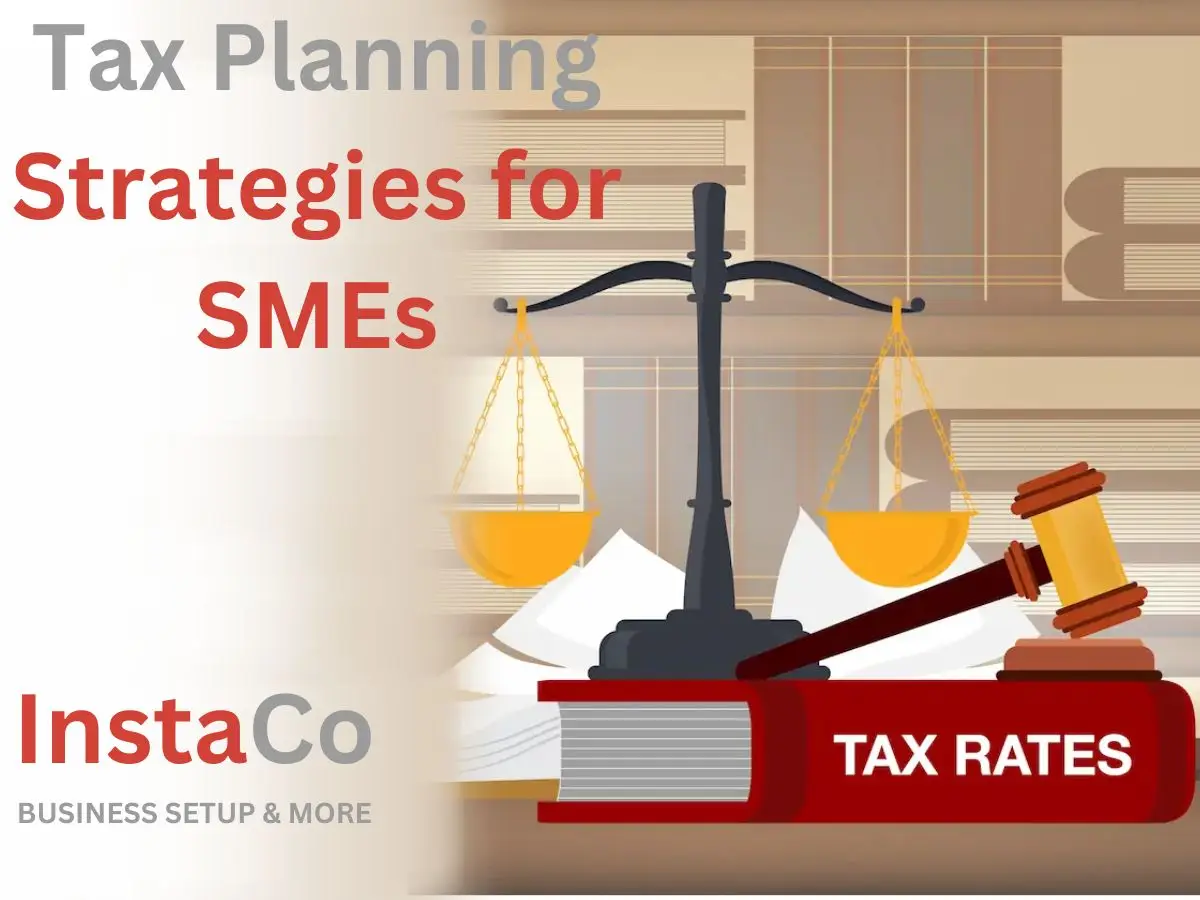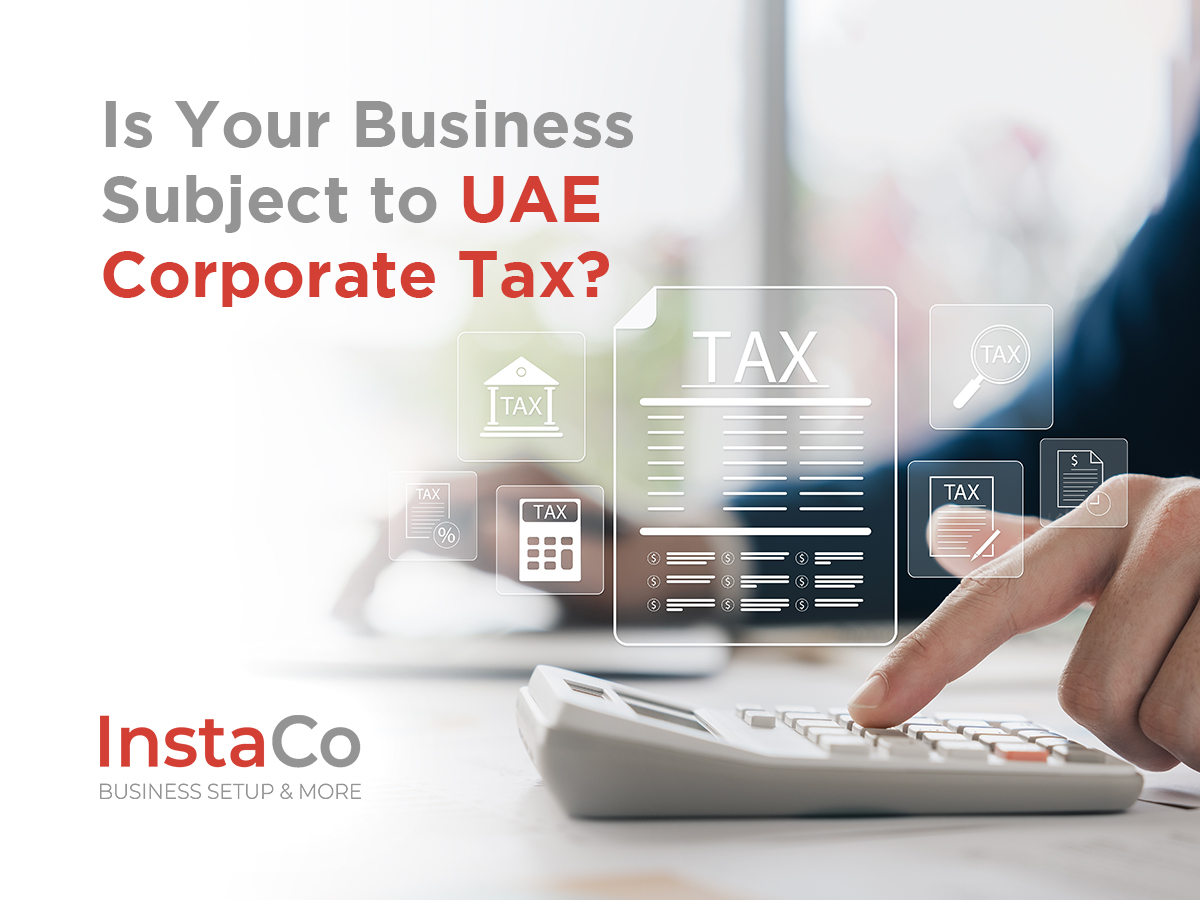Value Added Tax (VAT) is a significant consideration for businesses operating in the UAE. Determining your VAT registration UAE eligibility is crucial to ensure compliance with the law and benefit from the advantages VAT registration offers.
This guide provides businesses with a detailed overview of eligibility for VAT registration in UAE, steps to determine their VAT status, and the process of registration.
Introduction to VAT in the UAE
What is VAT?
VAT, or Value Added Tax, is a consumption tax levied on goods and services at each stage of production or distribution. The UAE implemented VAT on January 1, 2018, at a standard rate of 5%.
The purpose of VAT is to generate a sustainable source of revenue for the government to fund public services, reduce reliance on oil revenues, and align with international taxation standards. Businesses charge VAT on taxable supplies and can reclaim VAT on business-related expenses, ensuring fair tax practices.
Importance of VAT Registration
VAT registration in the UAE is a legal requirement for certain businesses and a step towards business growth and compliance.
- Benefits of VAT Registration: Registered businesses can recover VAT on purchases, maintain credibility with clients and suppliers, and enhance financial transparency.
- Legal Obligations: Businesses exceeding the mandatory thresholds must register for VAT to avoid penalties ranging from AED 10,000 to 50% of unpaid taxes
VAT Registration UAE Eligibility
Understanding VAT registration eligibility in UAE is crucial for businesses to ensure compliance with regulations.
Mandatory VAT Registration Threshold
The eligibility criteria for VAT registration in the UAE state that businesses must register for VAT if their annual taxable supplies and imports exceed AED 375,000. This threshold includes all revenue generated from taxable goods and services, excluding exempt supplies.
Implications:
- Businesses meeting this threshold must register within 30 days of becoming eligible.
- Non-compliance can lead to hefty penalties and reputational damage
Voluntary VAT Registration Threshold
For businesses with annual taxable supplies and imports exceeding AED 187,500 but below AED 375,000, VAT registration is optional.
Advantages of Voluntary Registration
The advantages of VAT are as follows
Reclaim VAT on Expenses
Voluntary VAT registration enables smaller businesses to recover the VAT paid on operational expenses, such as office rent, equipment purchases, and professional services. This can significantly reduce overall costs and improve cash flow, allowing businesses to reinvest savings into growth and development.
Enhances Credibility and Trust with Clients
Being VAT-registered boosts a business’s professional image and establishes trust with clients and partners. Many large corporations and government agencies prefer to work with VAT-registered businesses as it signifies compliance with legal regulations. This can open up opportunities to secure high-value contracts and partnerships
Positions Startups for Growth and Future Scalability
Registering for VAT voluntarily helps businesses prepare for future growth by ensuring their tax processes and systems are aligned with regulatory requirements. The transition becomes seamless as the business grows and exceeds the mandatory VAT registration threshold. Additionally, being VAT-registered from the beginning creates a solid foundation for scalability.
Improves Financial Management and Record-Keeping
Voluntary registration requires businesses to maintain detailed financial records, invoices, and VAT returns, leading to improved accounting practices. This helps track business performance more effectively, streamlines financial audits, and ensures transparency in operations.
Access to VAT Refunds for International Transactions
For businesses engaged in imports or exports, voluntary VAT registration allows them to reclaim VAT paid on cross-border transactions. This is particularly advantageous for startups and SMEs looking to establish a global presence while minimizing additional tax burdens
By voluntarily registering for VAT, businesses can gain financial and reputational benefits, ensuring long-term success and compliance in an increasingly competitive market.
Exemptions and Special Cases
Certain businesses are exempt from VAT registration. These include:
- Businesses dealing exclusively in zero-rated or exempt supplies, such as healthcare and education services.
- Startups and new businesses with projected taxable supplies below the voluntary threshold
Steps to Determine Your Business’s VAT Eligibility
Determining UAE VAT eligibility involves carefully assessing taxable turnover and consistently monitoring thresholds.
Calculating Taxable Turnover
Taxable turnover includes all taxable goods and services, zero-rated supplies, and imports.
- Taxable Goods and Services: Identify the revenue generated from products and services subject to VAT.
- Annual Turnover Calculation: Use financial statements or records to determine total taxable turnover over the past 12 months.
Monitoring Thresholds
Threshold monitoring is essential for businesses nearing the mandatory or voluntary limits.
- Regular Financial Reviews: Conduct monthly or quarterly assessments of revenue.
- Effective Tools: Use accounting software or consult professionals to stay informed about your business’s VAT eligibility.
How to Register for VAT in the UAE
Once a business determines its VAT registration eligibility in UAE, the next step is registration.
Preparing Necessary Documentation
Before starting the registration process, gather the following:
- Trade license and business registration documents.
- Passport and Emirates ID of the business owner(s).
- Financial statements and records of taxable supplies.
Online Registration Process
VAT registration is conducted through the FTA portal.
Steps to Register:
- Create an account on the FTA website.
- Complete the VAT registration application form.
- Submit supporting documents.
- Await FTA approval and issuance of your VAT registration number.
Common Challenges: Businesses often face delays due to incomplete documentation or inaccuracies in application forms. Consulting professionals can help streamline the process
Consequences of Non-Compliance
Non-compliance with VAT regulations can lead to severe repercussions for businesses.
Penalties for Failing to Register
Failing to register for VAT on time can result in fines of up to AED 20,000. Additionally, businesses may face:
- Penalties for unpaid taxes.
- Increased scrutiny and audits by the FTA
Importance of Timely Compliance
Adhering to VAT regulations protects businesses from financial penalties and ensures smooth operations.
Strategies for Compliance:
- Conduct regular financial reviews.
- Use accounting software to maintain accurate records.
- Stay informed about updates to VAT regulations
Recent Updates and Changes in VAT Regulations
VAT laws in the UAE are periodically updated to address emerging challenges and improve compliance.
Amendments to VAT Laws
Recent changes include:
- Enhanced rules for reporting taxable supplies.
- Adjustments to exemptions for certain industries.
These updates have implications for both existing businesses and startups. Staying informed ensures businesses remain compliant.
Staying Informed
Resources such as the FTA website and business consultants like InstaCo can help businesses keep up-to-date with VAT regulations. With years of experience and expertise, we have earned a solid reputation as a reliable and trusted partner for businesses seeking to establish themselves in the UAE.
Conclusion
Understanding VAT registration UAE eligibility is vital for businesses to comply with regulations and benefit from VAT registration. The thresholds, documentation requirements, and registration process are designed to ensure fair taxation and economic growth.
At InstaCo, we specialize in guiding businesses through the complexities of VAT registration and compliance in the UAE. Our team of experts provides end-to-end assistance, from evaluating your VAT obligations to preparing the necessary documentation and ensuring a smooth registration process.
Businesses are encouraged to assess their VAT obligations regularly. If in doubt, consult professional advisors like InstaCo to ensure compliance and avoid penalties.
By adhering to these guidelines and leveraging the support of InstaCo, businesses can ensure compliance with VAT eligibility in UAE and also contribute to the nation’s economic progress while positioning themselves for growth and credibility
FAQs
Who is eligible for VAT in UAE?
VAT registration UAE eligibility requires businesses with annual taxable supplies exceeding AED 375,000 to register for VAT under UAE law. This includes revenue generated from taxable goods, services, and imports. Businesses with taxable supplies between AED 187,500 and AED 375,000 may voluntarily register to benefit from VAT recovery and increase credibility.
What happens if a business fails to register for VAT in the UAE?
Failure to register for VAT when eligible can result in fines. Additional consequences include penalties on unpaid taxes, disrupted operations, and reputational damage. Businesses must monitor their taxable turnover closely and adhere to deadlines to avoid legal repercussions and ensure smooth operations.
What documents are required for VAT registration in the UAE?
To register for VAT in the UAE, businesses need to provide key documents, including a valid trade license, passport and Emirates ID copies of the business owner(s), financial statements, a description of business activities, and details of taxable supplies and imports. These documents ensure compliance with FTA requirements.
How can I calculate my taxable turnover?
Taxable turnover includes revenue from taxable goods, services, and imports, excluding exempt supplies. Use financial records such as invoices, contracts, and accounting statements to calculate the total for the past 12 months. Regular reviews of taxable turnover ensure compliance with VAT thresholds and eligibility requirements.
Why should I register for VAT voluntarily?
Voluntary VAT registration offers smaller businesses the ability to recover VAT on expenses, build credibility with clients, and streamline operations. It positions businesses for growth, helps attract larger clients, and ensures compliance with evolving tax regulations. Proactively registering demonstrates professionalism and enhances trust within the market.



